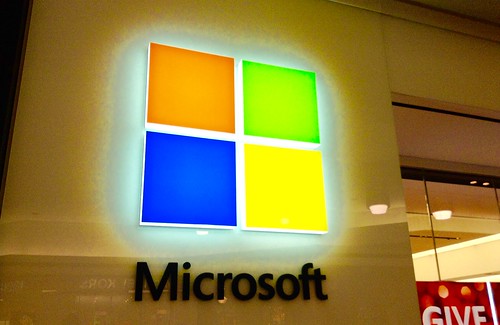Welcome to episode 178 (“Anticipating a Fluid Future”) of the EdTech Situation Room from May 20, 2020, where technology news meets educational analysis. This week Jason Neiffer (@techsavvyteach) and Wesley Fryer (@wfryer) discussed Microsoft’s revolutionary “Fluid” Office document format, privacy and surveillance in the COVID-19 era, and a new Mozilla VPN service. Passwords for sale on the dark web, Equifax’s failure to provide consumer compensation payments for the 2017 data breach, and conspiracy theory psychology were also highlighted. Rumors of forthcoming Apple Glasses for AR/.VR, tips for. addressing slow Internet speeds at home, SpaceX’s promises for low latency satellite connectivity, and tips for better videoconferencing were topics rounding out the show. Geeks of the Week included the Unsplash Images GSuite Marketplace App, the Rabbit Hole Podcast from the New York Times, and a DIY hack to breathe new memory life into an old iPod Classic. Our show was live streamed and archived simultaneously on YouTube Live as well as our Facebook Live page via StreamYard.com. Please follow us on Twitter @edtechSR for updates, and join us LIVE on Wednesday nights (normally) if you can at 10 pm Eastern / 9 pm Central / 8 pm Mountain / 7 pm Pacific or 3 am UTC. All shownotes are available on http://edtechSR.com/links.
Shownotes
- EdTech Situation Room Listener Survey: wfryer.me/edtechsr
- Follow @edtechSR on Twitter!
- Audio podcast feed (Subscribe with iTunes or Stitcher)
- Video version on YouTube
- Check out our video podcast feed and subscribe to our YouTube Channel (episodes also in this YouTube playlist)
- Jason Neiffer (@techsavvyteach) – blog: blog.ncce.org
- Wes Fryer (@wfryer) – blog: speedofcreativity.org – Class website – Remote Learning Support Resources
- Americans are surprisingly open to letting their phones be used for coronavirus tracking (The Verge; 30 April 2020)
- Mozilla launches a standalone VPN service for Android and Chromebook (9 to 5 Google; 19 February 2020)
- How your passwords can end up for sale on the dark web (CNN; 6 May 2020)
- Your Equifax settlement $125 isn’t coming, but banks get their $5.5M (ArsTechnica, 19 May 2020)
- VIDEO: Plandemic and the seven traits of conspiratorial thinking
- The Conspiracy Theory Handbook by Stephan Lewandowsky and John Cook
- “Immune to Evidence”: How Dangerous Coronavirus Conspiracies Spread (ProPublica, 17 May 2020)
- NOT REAL NEWS: A look at what didn’t happen this week (AP News, 15 May 2020)
- Microsoft’s New Fluid Office Document Is Google Docs On Steroids (The Verge; 19 May 2020)
- Chrome is getting a ton of big safety and security updates soon (The Verge; 19 May 2020)
- Google CEO Sundar Pichai defends Pixel team, says “hardware is hard” (ArsTechnica, 20 May 2020)
- Kuo: New 10.8-inch iPad and 9-inch iPad mini on the way, Apple Glasses in 2022 ‘at the earliest’ (9to5Mac, 14 May 2020)
- For video meetings, the eyes have it. Use these tips to make a better impression online (USA Today; 18 May 2020)
- Everything You Need to Know About Slow Internet Speeds (New York Times; 20 May 2020)
- Ajit Pai doubts Elon Musk’s SpaceX broadband-latency claims (ArsTechnica, 20 May 2020)
- Wes’ Geeks of the Week: Unsplash Images – G Suite Marketplace and Rabbit Hole Podcast (NYT)
- Jason’s Geek of the Week: Refurbish an Old iPod Classic??!
